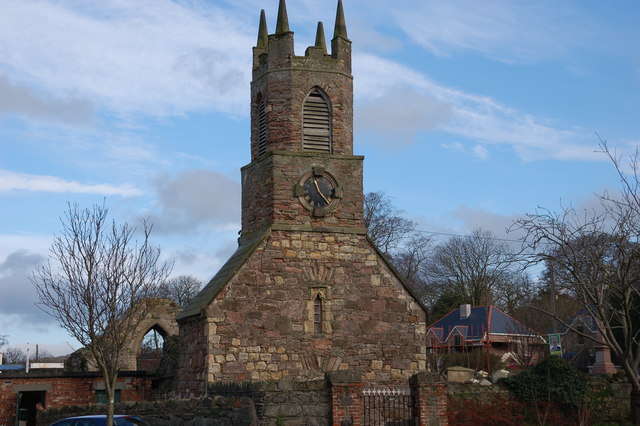|
Palace Barracks
Palace Barracks, Holywood is a British Army installation in Holywood, County Down, Northern Ireland. History Palace Barracks occupies the site of a palatial house known as "Ardtullagh", the home of the Bishop of Down, Connor and Dromore until it was bought by the UK War Office in 1886. In 1933, six children of Lance Corporal Harry Poole and his wife, Mary, lost their lives from asphyxiation following gas poisoning in the married quarters of the barracks. During the roughly three decades of "The Troubles" in Northern Ireland, the barracks served as the home base for battalions rotating through the province, especially those on a two-year "accompanied" tour with their families. A wide variety of facilities are available for soldiers to use off duty, including a swimming pool, squash courts, saunas, bars and a gymnasium. Palace Barracks became the Regimental Headquarters of the Royal Irish Regiment in 2008. In March 2010, it was the site of a bombing. An elderly man was blown off ... [...More Info...] [...Related Items...] OR: [Wikipedia] [Google] [Baidu] |
Holywood, County Down
Holywood ( ) (Irish: ''Ard Mhic Nasca'', meaning 'Height of the Son of Nasca'. Latin: ''Sanctus Boscus'', meaning 'Holy Wood') is a town in the metropolitan area of Belfast in County Down, Northern Ireland. It is a civil parish and townland of 755 acres lying on the shore of Belfast Lough, between Belfast and Bangor. Holywood Exchange and Belfast City Airport are nearby. The town hosts an annual jazz and blues festival. Toponymy The English name ''Holywood'' comes . This was the name the Normans gave to the woodland surrounding the monastery of St Laiseran, son of Nasca. The monastery was founded by Laiseran before 640 and was on the site of the present Holywood Priory. The earliest Anglicised form appears as ''Haliwode'' in a 14th-century document. The Irish name for Holywood is ''Ard Mhic Nasca'' meaning "high ground of Mac Nasca". History In the early 19th century, Holywood, like many other coastal villages throughout Ireland, became popular as a resort for sea-bathing. M ... [...More Info...] [...Related Items...] OR: [Wikipedia] [Google] [Baidu] |
152 (North Irish) Regiment RLC
152 Logistic Regiment RLC is a North Irish reserve British Army regiment of The Royal Logistic Corps. History The regiment was formed in the Royal Corps of Transport (RCT) in 1967 with two transport squadrons. It was redesignated 152 (Ulster) Ambulance Regiment RCT in the 1980s, and transferred into The Royal Logistic Corps (RLC) in 1993 as 152 (Ulster) Ambulance Regiment RLC. In 1999 it acquired a third squadron from 157 Transport Regiment and was put under the administrative control of the Army Medical Services. In 2006 it re-roled as a transport regiment and was transferred back to control of The Royal Logistic Corps, returning an ambulance squadron to 157 Transport Regiment and acquiring a newly raised third transport squadron. Under Army 2020 the regiment was paired with 9 Regiment RLC under 102nd Logistic Brigade, while the regiment joins 104th Logistic Support Brigade. As part of this plan, the regiment became a specialist 'Fuel Support' regiment in 2015, the only unit o ... [...More Info...] [...Related Items...] OR: [Wikipedia] [Google] [Baidu] |
Terrorist Incidents In The United Kingdom In 2010
Terrorism, in its broadest sense, is the use of criminal violence to provoke a state of terror or fear, mostly with the intention to achieve political or religious aims. The term is used in this regard primarily to refer to intentional violence during peacetime or in the context of war against non-combatants (mostly civilians and neutral military personnel). The terms "terrorist" and "terrorism" originated during the French Revolution of the late 18th century but became widely used internationally and gained worldwide attention in the 1970s during the Troubles in Northern Ireland, the Basque conflict, and the Israeli–Palestinian conflict. The increased use of suicide attacks from the 1980s onwards was typified by the 2001 September 11 attacks in the United States. There are various different definitions of terrorism, with no universal agreement about it. Terrorism is a charged term. It is often used with the connotation of something that is "morally wrong". Governments and ... [...More Info...] [...Related Items...] OR: [Wikipedia] [Google] [Baidu] |

